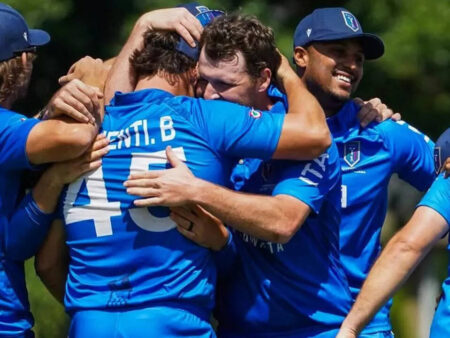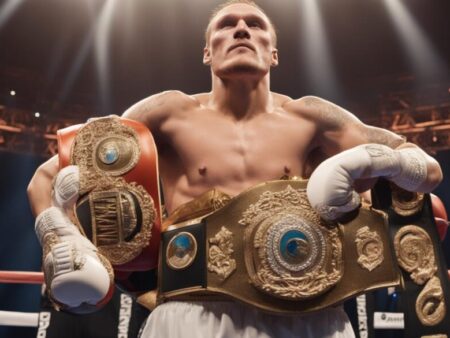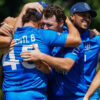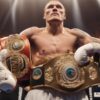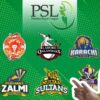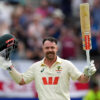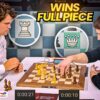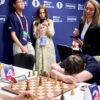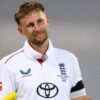INGLEWOOD, California – In the lead-up to the Concacaf Nations League in Los Angeles, geopolitical issues emerged as a significant backdrop to the North American soccer championship. Events highlighting these tensions included a joke by comedian Jon Stewart on ‘The Daily Show’ and a heated hockey match between the USA and Canada. Canada’s American coach, Jesse Marsch, further brought politics into soccer by criticizing U.S. President Donald Trump’s ’51st state’ rhetoric during trade disputes, shortly after Canada’s hockey victory over the U.S.
As the coaches from the USA, Canada, Mexico, and Panama gathered at SoFi Stadium before the semifinals, they stated that their discussions with players were solely about soccer and that their focus remains on the sport this week.
The political questions were especially relevant for Panama’s coach, Thomas Christiansen, given their semifinal against the U.S. This game occurs amid rising tensions over the Panama Canal, after Trump claimed the U.S. ‘reclaimed’ it, a statement refuted by Panama’s President Jose Raul Mulino as false. Christiansen, from Denmark, avoided commenting on these political matters.
‘Politics is not my focus. I prefer to avoid it,’ Christiansen stated. ‘It’s not my concern. I’m happy to discuss football tactics, but not politics.’
While Christiansen was brief, his counterparts found it harder to ignore the political context. Marsch, while reaffirming his previous comments, adopted a more positive tone, hoping the tournament would showcase the best of their societies, moving beyond political distractions to celebrate the sport and support their teams.
Mauricio Pochettino, the U.S. team’s Argentine coach, echoed Marsch’s friendly approach, both publicly and in a prior private conversation.
‘I spoke with Jesse Marsch on the field, and we had a very good conversation,’ he mentioned. ‘We are friendly from our time in Europe.’
Both Marsch and Pochettino agreed that North American politics shouldn’t affect their preparations and that players can keep their political views private. Marsch noted his players are aware of the issues but shouldn’t be expected to be ‘political figures.’ Pochettino, while acknowledging his values, felt unqualified to discuss geopolitics in detail, mirroring Christiansen’s stance but with a longer explanation.
Pochettino emphasized that fans are interested in soccer, not political commentary from coaches. He stressed separating politics from pre-game preparations, referencing how the Falklands War between the UK and Argentina didn’t prevent him from living and working in London.
‘Sport and politics should be separate,’ Pochettino said. ‘Motivation should come from the game, not political or diplomatic issues. Players shouldn’t be burdened by these concerns. Football is for enjoyment and fan happiness.’
Marsch, like the others, has concentrated on uncontroversial nationalistic aspects of sports. He mentioned wanting his team to embody the ‘Canadian hockey mentality’ and communicated with Canada’s hockey coach during the 4 Nations Challenge. Despite the coaches’ focus on soccer, the geopolitical backdrop of the Concacaf Nations League remains evident.
‘The atmosphere around international sports for North American national teams is heightened,’ Marsch observed. ‘There’s definitely a charged feeling surrounding these international matches now.’
